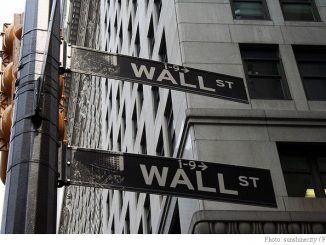A surprising new Small-Is-Beautiful movement is afoot. Mario Rizzo, Jerry O’Driscoll, Harry Kaufman and others make a case for breaking up too-big-to-fail financial institutions. As Mr. Kaufman puts it, otherwise those companies will become financial public utilities backstopped by the government.
It’s not likely that the 2008 crisis would have been prevented had top investment banks like Goldman Sachs (GS) been smaller. Traditional little banks are going down in droves. They fail because real estate loans are going bad. So many depository banks have gone under that the FDIC, the federal agency that insures deposits, itself ran out of money and asked to be bailed out by prepayment of bank premiums.
The same real estate bubble-and-bust hit larger banks through mortgage-backed securities. That’s regardless of size. Moreover, the government does not just bail out big investment banks. It bailed plenty of small savings & loan associations in the 1980s. The concept of “too-big-to-fail” is remarkably elastic. Consider that GM and Chrysler both received federal aid. Chrysler is a lot smaller, but the political preference is to treat it as too-big-to-fail. Keeping banks relatively small will not stop such bailouts.
That said, there is a serious quandary.
Mr. O’Driscoll points out that “the size and complexity of the major financial firms do not reflect market forces but public policies.” The government won’t let big banks go under; knowing this financial companies become big and make risky bets; since their failure may wreck havoc, taxpayers are forced to bail them out.
As Russell Roberts wrote, “If the taxpayer almost always eats the losses for the losers, you don’t have capitalism. You have crony capitalism.” Is the solution anti-trust action against the big banks?
Trust-busting may sound like the right step after a Great Crisis. But there is no real anti-trust case. The so-called bulge bracket banks are the ones you see in the headlines, but medium and small – often called ‘boutique” – investment banks are significant enough to attract many people from the big league.
Each line of business that makes up investment banking, from brokerage to trading, is subject to ferocious competition. Bank trading desks, for instance, compete with thousands of hedge funds.
So reducing the size of investment banks on the ground that they rely on government backstopping would be a new type of intervention and a major expansion of regulatory authority. This is not any less of an intervention than other kinds of regulation being bandied about. You’re not tackling monopoly power but moral hazard. Why not stop creating moral hazard?
But let’s take it that the government can’t – or won’t – stop creating moral hazard for big institutions. What to do? Gary Becker suggested imposing a higher capital requirement for larger banks. He wrote in March; “implement a progressive set of capital requirements relative to assets that would increase as the size of a bank or other financial firm increased.”
This automatic rule has the great advantage that it limits regulators’ discretion. It is certainly better than arbitrary interventions dictated by lobbyists, although somebody would have to decide how much to increase the capital requirement and at what levels of bank assets.
Last week Senator Chris Dodd introduced an alternative to a financial regulation bill backed by the administration. Among other measures, Mr. Dodd would require large companies to draft emergency plans for orderly shutdown in case of insolvency. If they fail to provide “funeral plans” they may face greater capital requirements, restrictions on growth and forced sale of risky businesses.
A clear, transparent rule of progressive capital requirements is the best idea so far. Mr. Becker’s proposal certainly merits greater attention.
But it will not prevent future crises as long as the Federal Reserve blows asset bubbles and politicians encourage the giving of mortgages to the less credit-worthy. I suppose fiddling with banks is easier than confronting that reality.
- Bulenox: Get 45% to 91% OFF ... Use Discount Code: UNO
- Risk Our Money Not Yours | Get 50% to 90% OFF ... Use Discount Code: MMBVBKSM
Disclaimer: This page contains affiliate links. If you choose to make a purchase after clicking a link, we may receive a commission at no additional cost to you. Thank you for your support!




Leave a Reply